Introduction
Imagine sitting across the table from a client who’s asking about a recent change in their policy and you’re not exactly sure what’s changed or how it affects them. That situation can feel uncomfortable, especially when they’re expecting you to have the answers. This is where ongoing education comes into play for insurance professionals. It’s more than just checking boxes for compliance. It’s about staying sharp, accurate, and prepared for any conversation that comes your way.
Insurance is one of those fields that doesn’t stand still. Laws shift, coverage options evolve, and client needs grow more complex. Keeping your knowledge current helps you respond with confidence, avoid costly errors, and build a reputation as someone who’s reliable in any scenario. Whether you’ve been in the industry for years or just got licensed, continuing education gives you the tools to move forward with purpose.
The Importance Of Ongoing Education In Insurance
Continuing education might sound like background noise when your calendar’s packed with meetings, policy reviews, and claim calls. But skipping it can leave gaps in your understanding, especially when renewal cycles or legal updates pop up. For anyone working in insurance, learning never stops. It helps prevent mistakes, sharpens judgment, and keeps you informed when rules change overnight.
Florida’s insurance guidelines, for example, often get updates that affect everything from policy language to changing state laws. Without regular education, those shifts can slip through the cracks. This isn’t just about meeting state requirements. It’s about being responsible for your knowledge base. Clients rely on what you know, and that trust comes from staying up to date.
There’s also the career story. Agents who commit to ongoing education often find themselves in stronger positions to grow. When you know the current rules and understand advanced concepts, you’re more likely to earn more trust, get referrals, and take on new opportunities. It’s not about memorizing pages of facts. It’s about gaining useful knowledge that shows up in real-world conversations.
Types Of Continuing Education For Insurance Agents
Not all continuing education is the same. Some courses are required by state law for keeping your license active. Others are electives that let you strengthen skills in areas that interest you or match where you’d like your career to go. Then there are options that focus on keeping up with trends, technology, and client expectations.
Here’s a quick look at the most common types of continuing education:
– Mandatory courses: These are required by the state. In Florida, for example, agents must complete certain hours tied to ethics, law updates, and core subjects in order to renew their license. Skipping these can lead to fines or worse, losing your license.
– Elective courses: These give you the chance to go deeper into topics that match your work. You might choose to learn about commercial auto policies or how to handle claims related to environmental damage. Some agents pick electives that align with the kind of clients they serve most often.
– Professional development courses: These focus on the client experience side of things. Topics might include sales communication, ethical decision-making, or handling difficult conversations. These courses help agents develop soft skills that can lead to stronger client relationships. These are often available in person through professional associations and industry events.
Types of continuing education will also vary depending on license type and area of specialization. A health insurance agent will have a very different focus compared to someone in property and casualty. But the outcome is always the same—better preparedness, deeper knowledge, and more trust from the people counting on you.
Benefits Of Continuing Education
Making space in your schedule for continuing education has more upside than just maintaining your license. It helps you become more effective, more trusted, and more confident in handling complex situations. One of the biggest wins is that it sharpens your understanding of new regulations and trends, which cuts down on the chances of giving outdated advice to clients.
It also builds your communication with clients. When you’re well-informed, you’re less likely to hesitate or second-guess your answers. That confidence shines through, and people notice. Clients feel safer when they know the person advising them understands their coverage inside and out. Over time, this trust becomes a huge part of your reputation.
Continuing education can also lead to career progress. Whether you’re looking to specialize in new fields, step into leadership, or grow your book of business, staying sharp helps you handle new responsibilities. Take for example an agent who keeps up with flood policy changes. They end up being the go-to person when clients need coverage after heavy storms, especially in places like Florida where flood risks are high. That kind of expertise opens doors to strong referrals and new client opportunities.
How To Incorporate Continuing Education Into Your Routine
Juggling work and study can feel overwhelming, but with a bit of planning, it’s more than manageable. The right setup lets you build your knowledge without falling behind on your workday priorities. A few key changes to your routine can help make education part of your rhythm instead of treating it like an extra chore.
Try these steps to fit continuing education into your busy schedule:
1. Set a goal for each renewal cycle. Decide what topics you want to cover and how many hours you want to complete each month.
2. Break up study time into small chunks. Rather than setting aside a full day, aim for 30-minute blocks that you can slot in between appointments or after business hours.
3. Pick flexible course formats. Online programs let you pause and resume at your pace. That way, you can study during lunch, on a weekend, or whenever your schedule allows.
4. Use a calendar to track deadlines. Mapping deadlines visually keeps things from sneaking up and helps you avoid rushing through courses or required hours at the last minute.
5. Reward your progress. Even small wins like completing a module or passing a quiz deserve a little recognition. It keeps you motivated and moving.
Choosing topics you connect with also makes a difference. If you enjoy what you’re learning, it won’t feel like a box to check. Whether that’s ethics, advanced coverage, or improving your client presentations, aligning your courses with personal or professional growth brings long-term gains.
Staying Sharp Builds Your Future
Staying current in the insurance field goes far beyond meeting legal standards. It helps you build deeper connections with clients, respond clearly to policy questions, and adapt to new responsibilities as the field continues to change. The right courses also help sharpen your negotiation skills, polish your presentations, and strengthen your role as a trusted advisor.
In Florida, where policy changes happen often, being proactive with continuing education makes a big difference. It prepares you for change so you’re never caught off guard. With a schedule you control and plenty of helpful topics available, learning becomes something that works for you, not against your workflow.
Upgrade your career by embracing the advantages of ongoing learning in the insurance field. Explore our insurance agent continuing education courses at All-Lines Training. With us, you’ll find flexible options that help you stay ahead and thrive in your career. Dive in and discover how to keep your knowledge fresh and your skills sharp.



